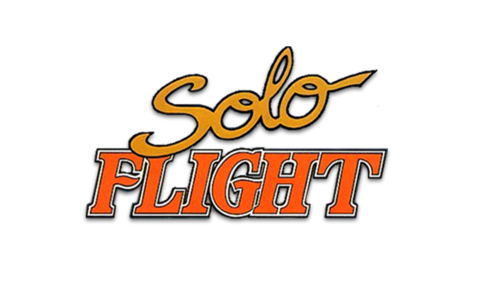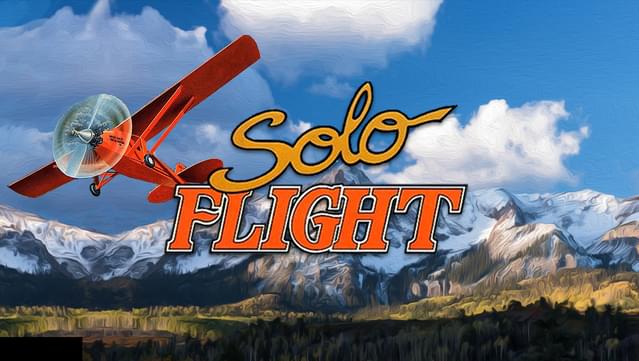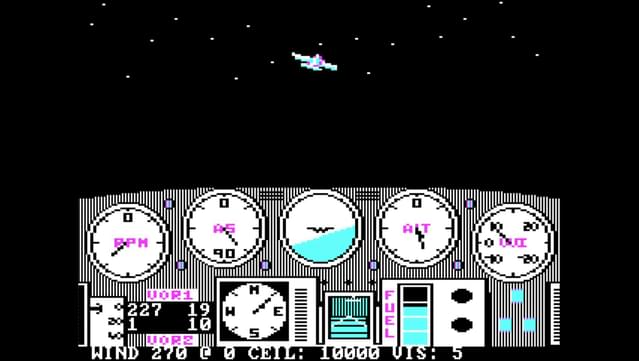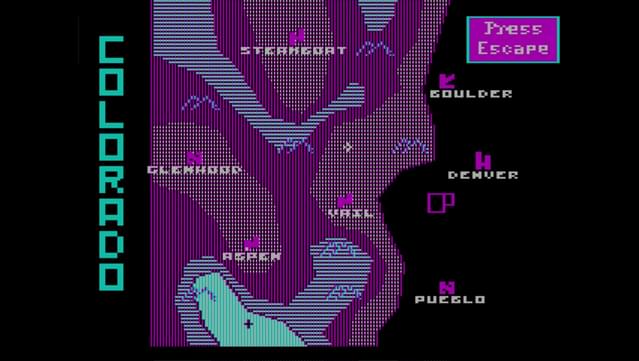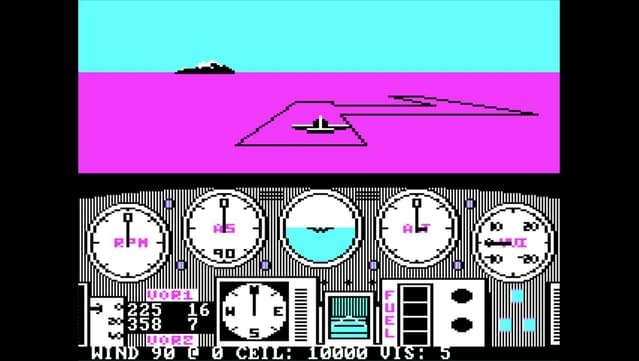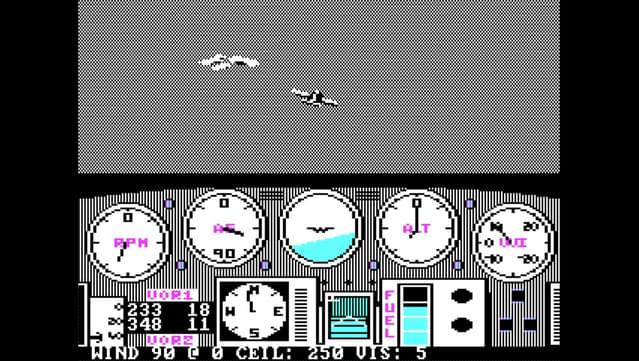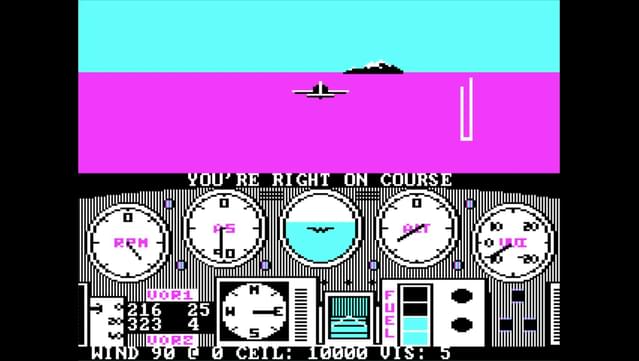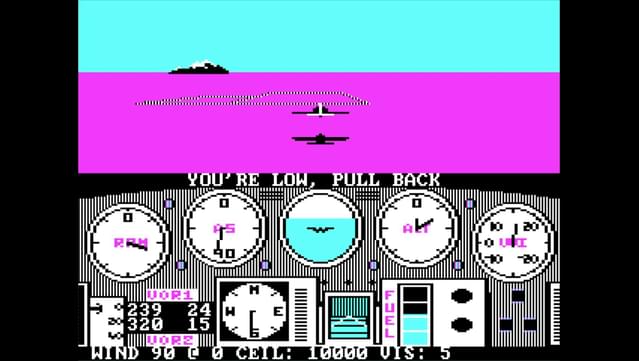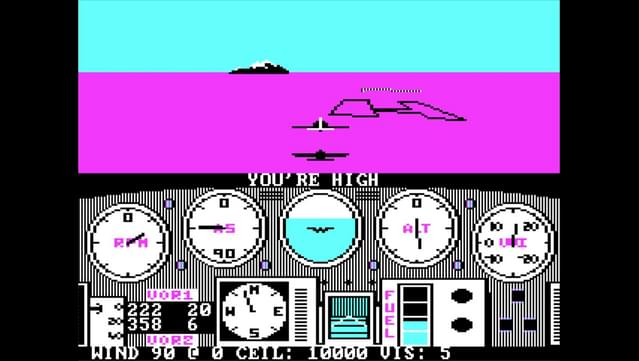There is no autopilot here, no computer-aided navigation. This is old-school dial-based flight instrumentation, which will challenge your skills when bad weather takes away the horizon and prominent landmarks. You will need to rely on VOR navigation -- short-wave radio signals from ground-based stations and airports -- to guide your plane to its destination.
To give pilots in Solo Flight a sense of purpose, Meier created a game mode called Mail Pilot. Your task is to deliver mail bags to regional airports in the least amount of time. Loading up on fuel and cargo will increase your score, but it will also slow you down and increase the difficulty of flying. Deteriorating weather and mechanical emergencies add unexpected challenges. You are also graded on your piloting skills, so your score will be impacted by how well you land. Did you come in too fast? Did you stall? Turn too sharply on the ground or taxi off of the runway?
- Flying by both visual flight rules (VFR) and instrument flight rules (IFR)
- Accurate small plane instrumentation
- Maps and VOR navigation
- Three states: Colorado, Kansas and Washington/Oregon
- Four levels of difficulty
- Weather and mechanical emergencies
- Mail Pilot game mode
- A well-written, detailed, 15-page user manual with tips for less-experienced pilots
- Single-player
Sid Meier is one of the most well-known and prolific strategy video game designer-producers. Solo Flight was first published in 1983 under the Microprose label.
© 1983-2021 Atari Interactive, Inc. ATARI, the ATARI logo, are trademarks of Atari Interactive, Inc. in the U.S. and other countries. All rights reserved. All other trademarks are the property of their respective owners.
Coś poszło nie tak. Spróbuj odświeżyć stronę.
Nikt jeszcze nie ocenił tej gry
Żaden ze zweryfikowanych posiadaczy
nie ocenił jeszcze tej gry
Nie znaleziono oceny zgodnej z
kryteriami wyszukiwania
nie dotyczy
Nie dodano jeszcze recenzji.
Brak recenzji spełniającej wybrane kryteria
